They're never seen in Patong's Soi Bangla, never spotted sunning themselves on the beach at Kata or Karon.
Certainly they have been spotted on snorkelling day-trips, where every so often, one drowns.
Bar and restaurant owners puzzle over where the Chinese might be spending their money, because it sure isn't at regular Phuket bars and restaurants.
The turnstiles at Phuket International Airport are running hot, hotter than ever before, and the Chinese are the ones making Phuket tourism hum.
Unlike the Russians, who drive about in buses clearly branded Pegas T and make their presence obvious, the Chinese invasion is much more subtle.
Discreet, perhaps even secretive. And so Phuketwan went looking for Chinese tourists. And we found them, hundreds of them.
The ones we found weren't typical. There was no loud talking, eating or burping. No taking over the place. Perhaps we were just lucky.
The ones we met were in large new purpose-built establishments along a road near Prince of Songkhla University in the middle of the island. A road so new it still doesn't have a name on some maps.
At Modern Latex, a large modern building distinguished by the huge numbers of buses coming and going, we found a large showroom with Chinese on beds, scores of them, testing out pillows and mattress tops.
The products, said to be 100 percent pure, are not cheap. The pillows fetch 4500 baht while the mattress tops go for 30,000 baht.
In a corner, packers are working non-stop, putting the products into boxes for shipment back to China. It's quite surreal to see beds stretching off into the distance, with families of tourists stretching out on them.
In a second room, Chinese are lounging on beds while a spruiker up front, with chiropractic cutout spines on the wall in the background, enthuses about the benefits of the mattresses and the beds.
Or so we believe, because it's all in Mandarin. Some of the audience are possibly talking loudly and burping, but the scene is so surreal we fail to notice.
We are gently but politely shown the door.
Down the road there's a similar large, modern unobtrusive building, short of signage but with buses coming and going faster than you can say Beijing air pollution.
The main door slides open and we follow some tourists inside, fresh off the bus. Under a cloudy blue dome just inside the door there's a pit and ampitheatre-style seating.
Ah, we realise. It's a snake show. Before we can take a peek in the other rooms running off the main entrance, we are gently but politely shown the door once more.
Outside we discover a bit of signage. The place appears to be called Royal Park Phuket. Out front there's a pond with water sprays sprouting from what we now realise are snakes' heads.
In between the two large new buildings, right alongside a huge block surrounded by green screening which is clearly being developed for another tourist haven, sits CoCo Spa.
The signage here is more obvious but it's another place we are told is popular with Chinese tourists. The receptionist kindly allows us to check the prices.
They are very competitive, not too high or too low, and the place looks a pleasant spot for flesh-pounding.
All the buses we see the Chinese pulling up in are unobtrusive, typical Thai tour buses with Thai signage, with only a paper sign in the front window to show the Chinese connection.
The invasion is extraordinary for its numbers, its silence, and its completeness, with a small apartment-for-rent in Phuket City telling us that Chinese independent travellers now make up 30 percent of their guests.
Large jewellery outlets, roadside businesses selling exotic tropical fruit and performance outlets such as FantaSea, Siam Niramit and Tiger Kingdom are other places where the travellers go.
Local Thai guides continue to complain, making the point that scores of Chinese guides are now based on Phuket, even though they sometimes claim to be travelling with tour groups.
A meeting of all guides on Phuket has been scheduled for September 2. Some of the guides want changes quickly.
Yet if as reported by top-level tourism sources China bans zero-baht tours from October 1, Phuket may soon come to miss its loud talking, loud burping invaders.

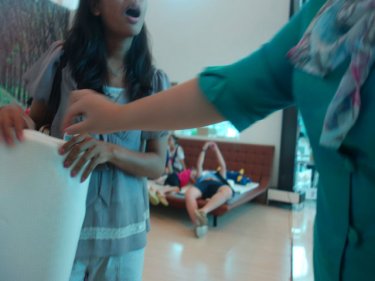





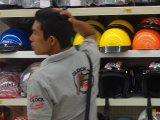

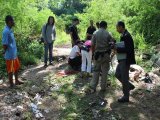
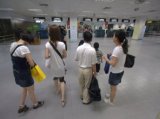
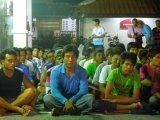
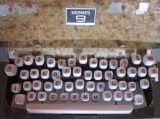
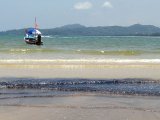

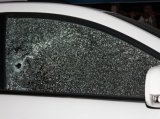
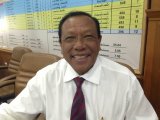
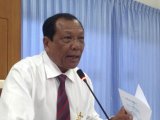
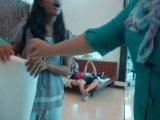
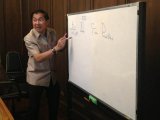
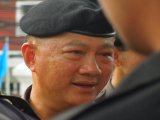
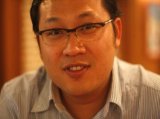



Several years ago, most of my airport hotel guests were 'westerners', originating from Australia, Europe and the USA/Canada.
Now more than 50% of my guests stem from mainland China. That data is supported by the extensive, demographic statistics that my booking agent (Agoda) provides to me.
That (for me), clearly shows the importance of this market sector, and how the western tourist sector is no longer of prime importance to Phuket.
I'm not bothered what nationalities book my hotel rooms, as long as they keep coming :) And to make my guests feel more at home, I'm off to study conversational Mandarin so that I can ask my new guests not to burp so loudly...
Simon
Posted by Simon Luttrell on August 14, 2013 17:42